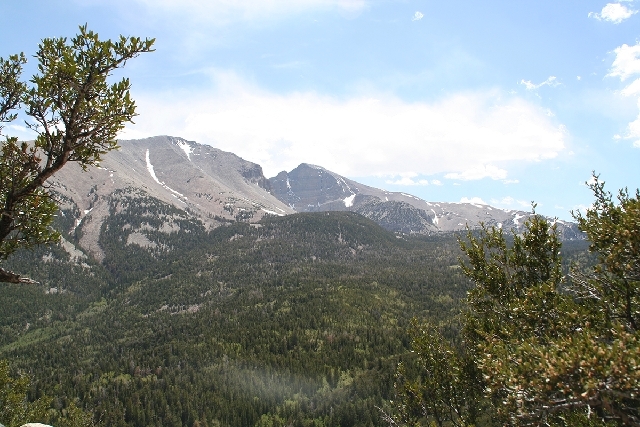Seek out the stars in Great Basin

Great Basin National Park lies less than five hours north of the teeming cities of Southern Nevada, and one wonders why it remains one of the least-visited in the park system. Certainly, it offers a great summer experience, for it lies in the Snake Range of Eastern Nevada and offers elevations from 6,200 feet to 13,063, the latter atop famed Wheeler Peak. Those elevations offer agreeable temperatures day and night, even as thermometers in Las Vegas seem stuck in triple digits.
The elevation — and skies free from light pollution — also enhance the park’s suitability for nighttime stargazing. Those skies are set to be celebrated Sept. 5-7 with the Great Basin Astronomy Festival. Despite its emphasis on the night skies, each day starts at noon with an Astronomy 101 workshop. Following this one-hour program, there are many more activities, including viewing the sun through solar telescopes and learning how to use a planisphere, the special tool used to find stars.
At 8 p.m. each day during the festival, visitors can look at planets, stars and galaxies through telescopes set up in the observing field, a five-minute walk from the Lehman Caves Visitor Center. There will be more than 30 telescopes, some as tall as 20 feet, and plenty of the park’s Dark Rangers and volunteers on hand.
Night-sky photographer Wally Pacholka is set to be the keynote speaker at 7 p.m. Sept. 6. Pacholka has learned how to use time exposures to capture the unearthly beauty of stars, comets, meteor showers and other celestial events, usually pictured in relation to the unspoiled landscapes of the West. His photos have been displayed in National Geographic and on the NASA website. His work can also be found at most national park gift shops in the Southwest.
Most visitors to the park make it a point to tour the natural caverns called Lehman Caves. Depending on whether you take the 90-minute or the 60-minute tour, it will cost an adult $10 or $8 to see the beautiful stone icicles and columns built up by dripping water and dissolved minerals over unimaginable millions of years. Children can see them for half-price and children 4 or younger are free. It’s cold in a marble cavern, so take a jacket, but otherwise the only items permitted in the cave are flashlights and hand-held cameras. You may be asked to wipe those down with special cleaners the staff will provide. All these steps are intended to protect cave life from certain diseases.
Besides the cave tour, the most popular thing to do in the park is take the Wheeler Peak Scenic Drive, a 12-mile road that winds its way up past 10,000 feet. At its top, you’ll be rewarded with views reaching east into Utah and of Wheeler Peak, looming still higher above.
Once you reach the terminus of the drive, a few great foot trails begin. The strenuous hike up to Wheeler Peak is suitable only for the experienced hiker. It is about 8 miles round trip, with an elevation gain of more than 3,000 feet. You must start early in the morning, as afternoon thunderstorms come in fast and furious. Shorter trails that are also worthwhile are the Island Forest Trail, a loop of less than a half-mile, and the Alpine Lakes Loop Trail, which is about 3 miles. All trailheads are near the parking area.
Great camping is available at Strawberry Creek, Lower Lehman Creek, Upper Lehman Creek, Baker Creek and Wheeler Peak. All sites are first-come, first-served, and each has a picnic table, fire grate and tent pad. Limited supplies, gas and lodging are available in Baker, just outside the park’s entrance. A variety of lodging and services can be found in Ely, about 70 miles away.
Because of the high elevations in the park, be prepared for cool temperatures. Average September daily highs are in the 70s, yet nights are chilly, sometimes dropping into the 40s or even 30s.
The park is open year-round, yet the scenic road closes due to heavy snow, sometimes as early as late September. The Lehman Caves Visitor Center and the cavern tours are open year-round. In summer, reservations are strongly recommended for these tours.
For more information on the park, weather and road conditions, call 775-234-7331 or visit nps.gov/grba.
Deborah Wall is the author of “Great Hikes, A Cerca Country Guide” and “Base Camp Las Vegas: Hiking the Southwestern States,” published by Stephens Press. She can be reached at deborabus@aol.com.